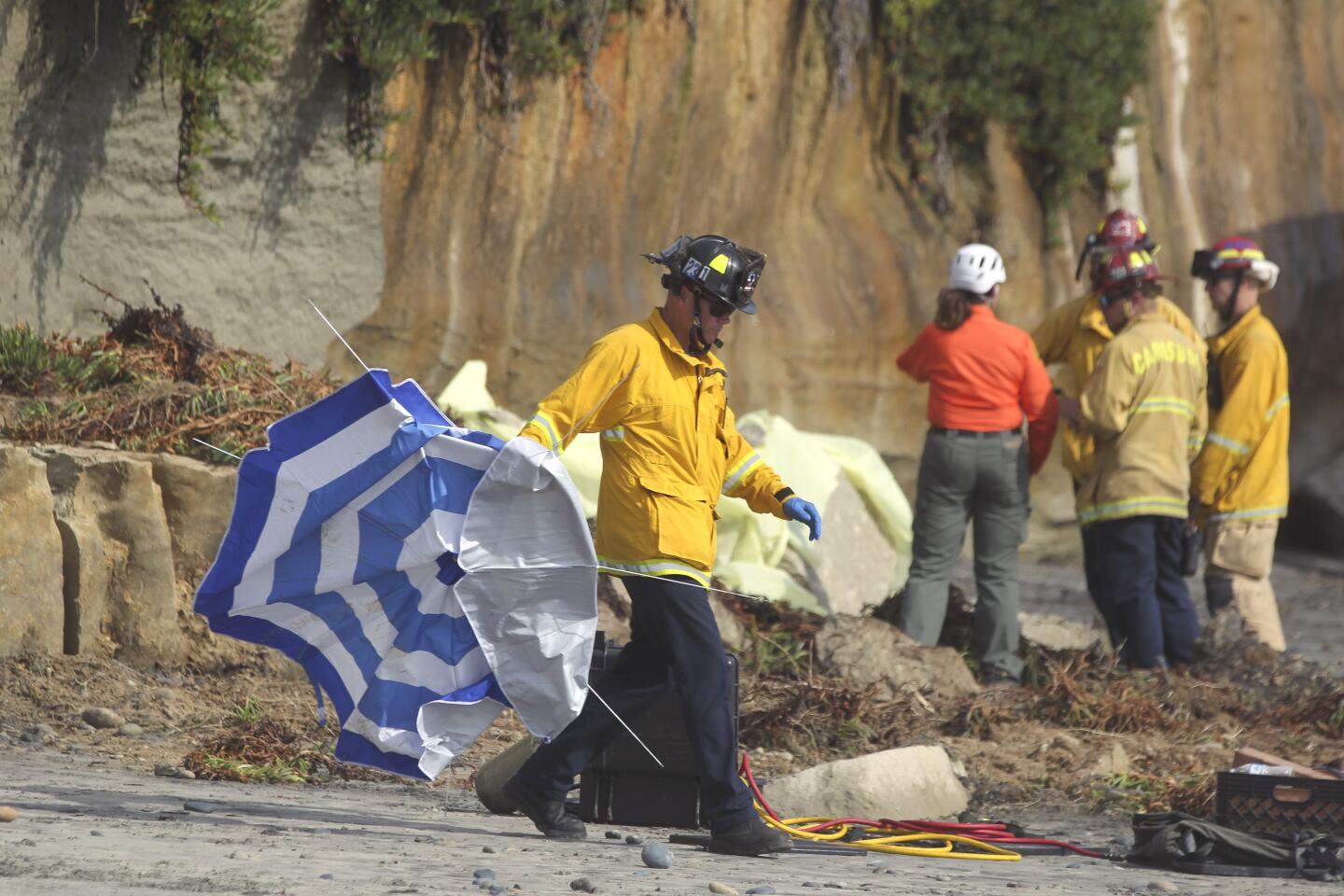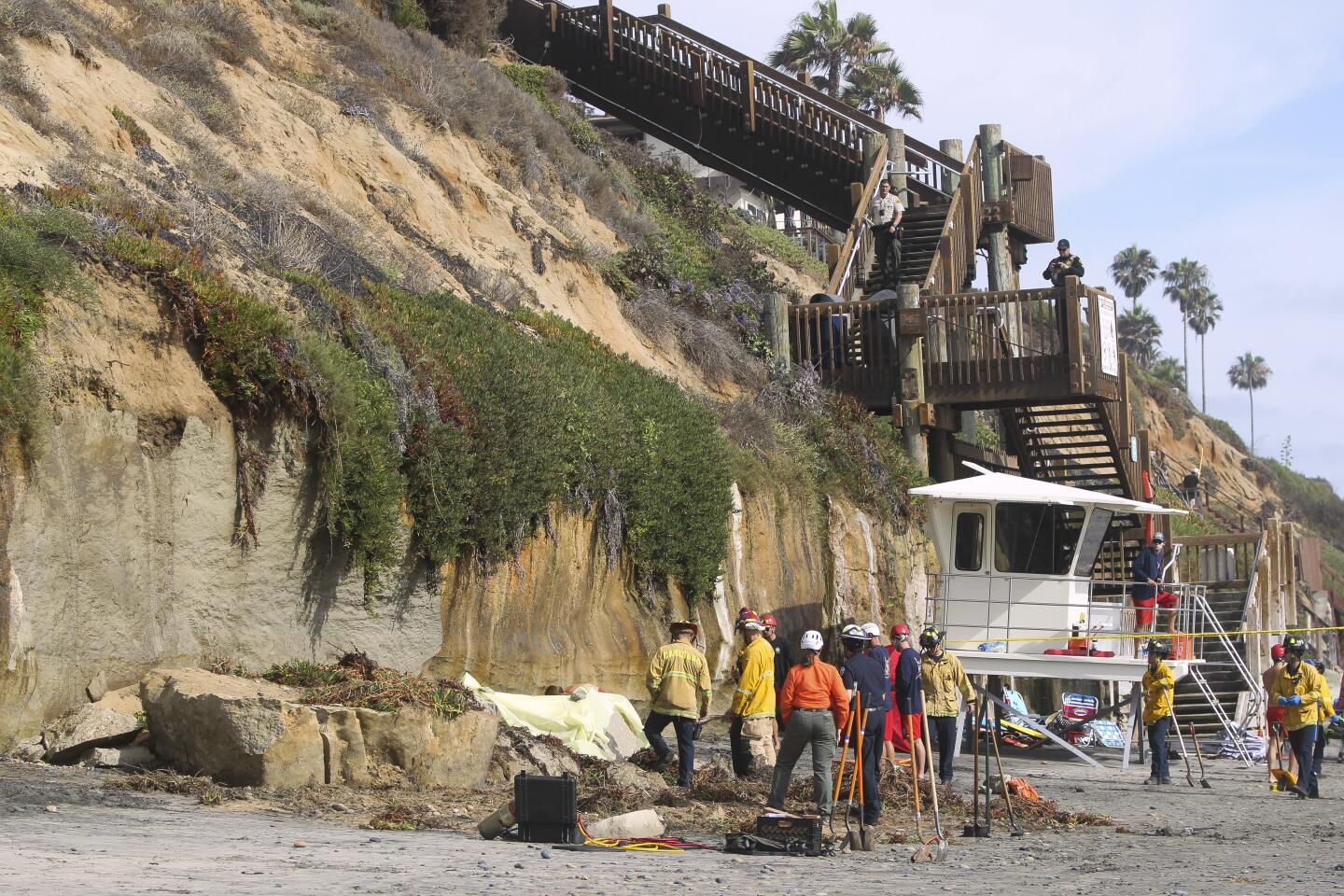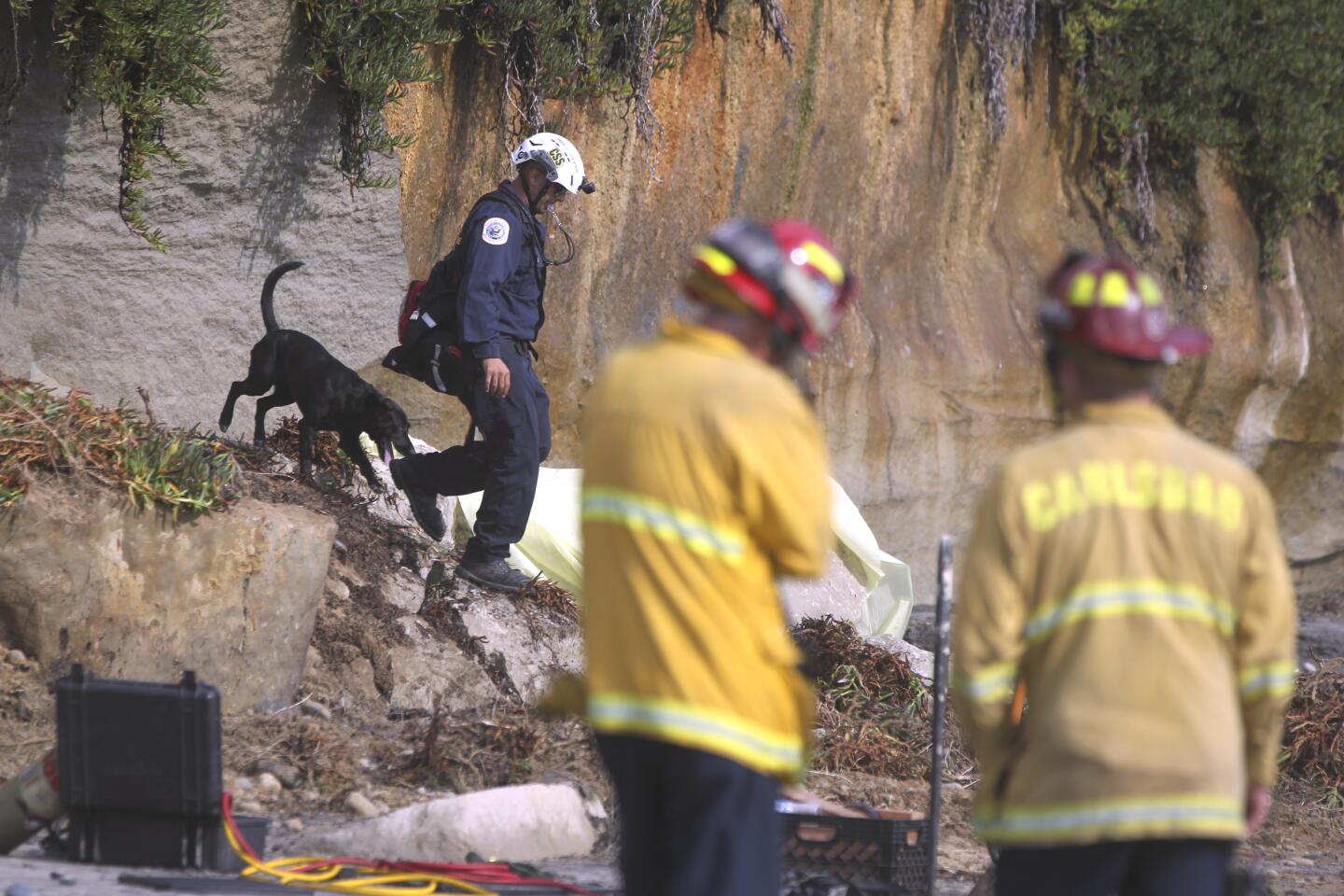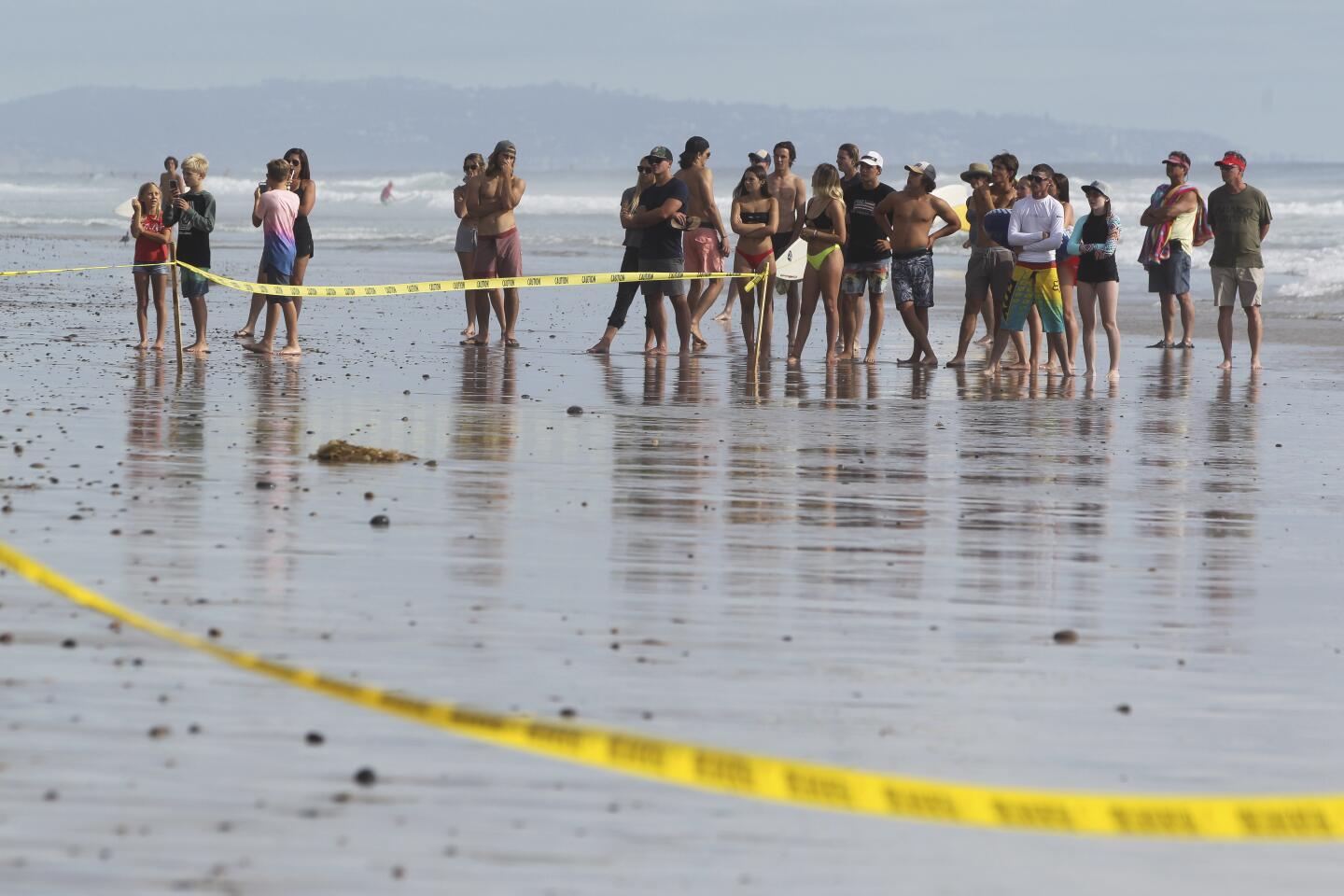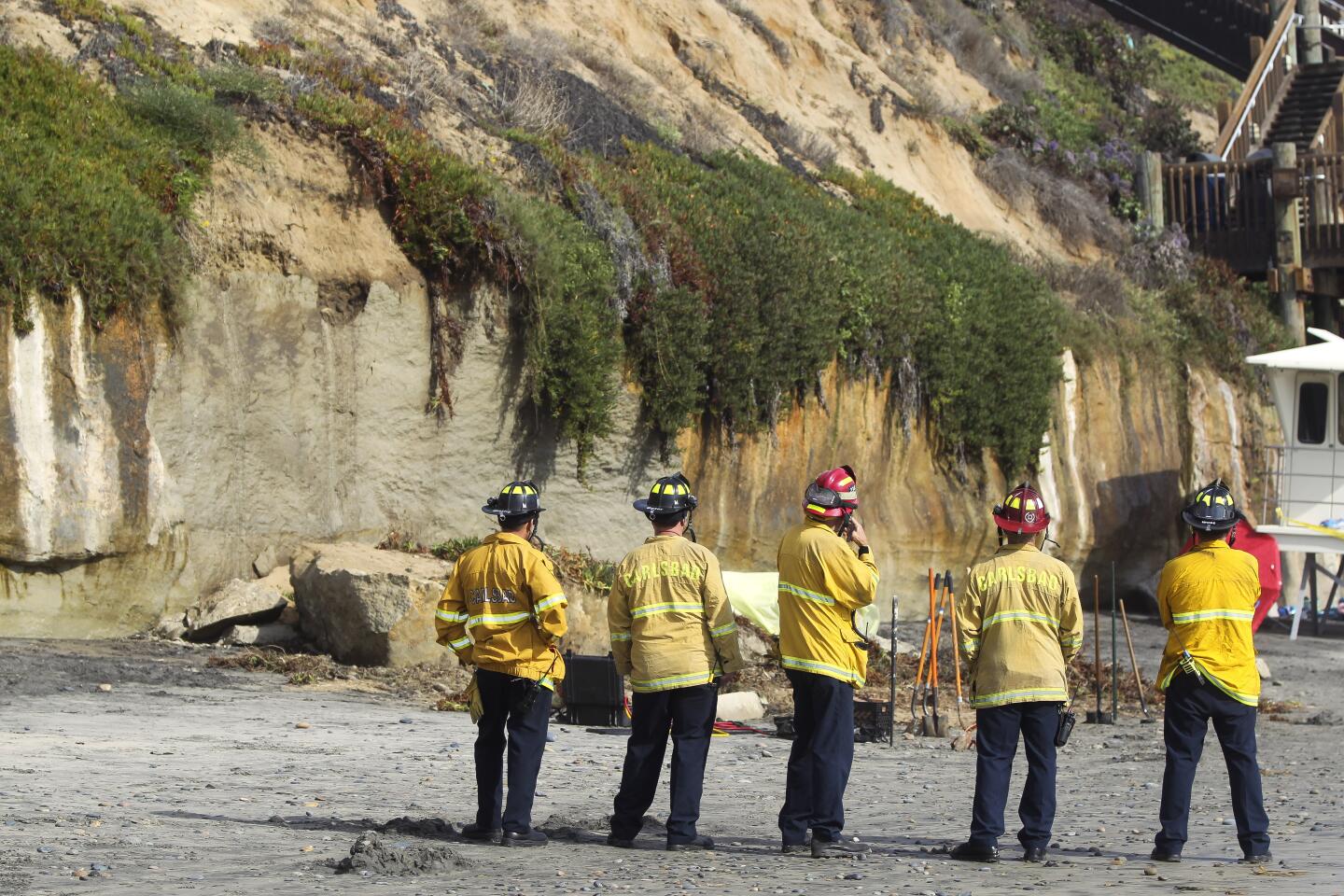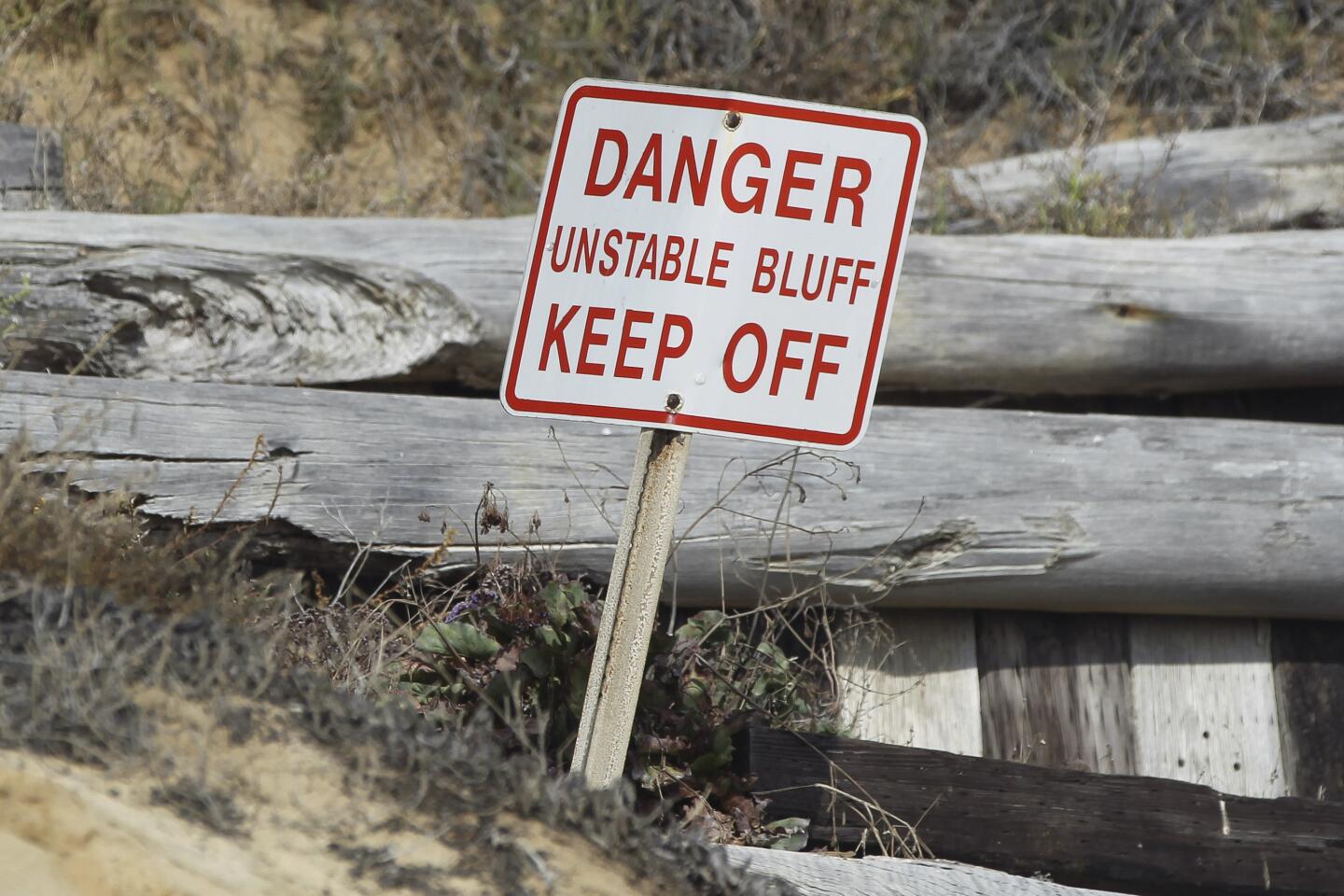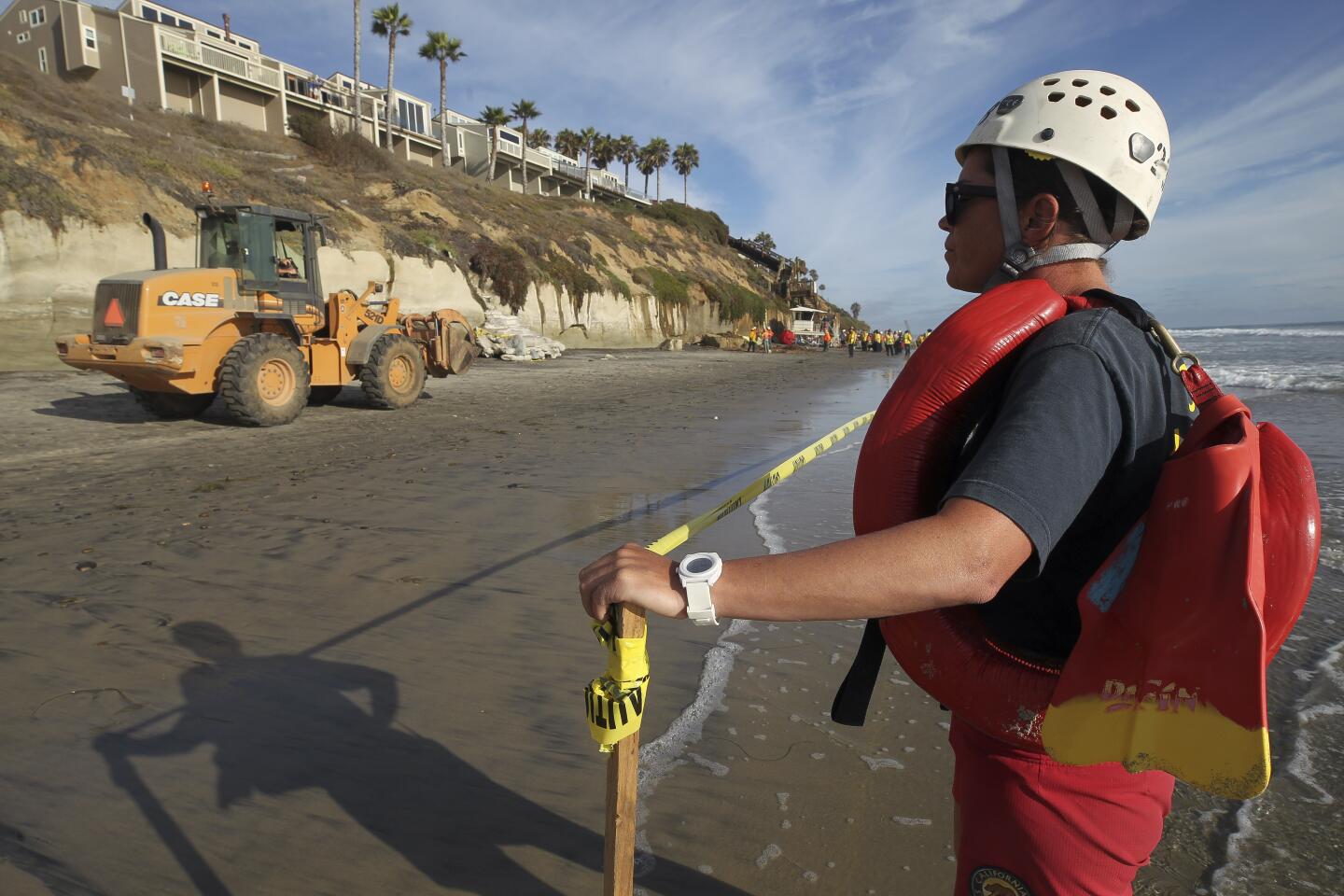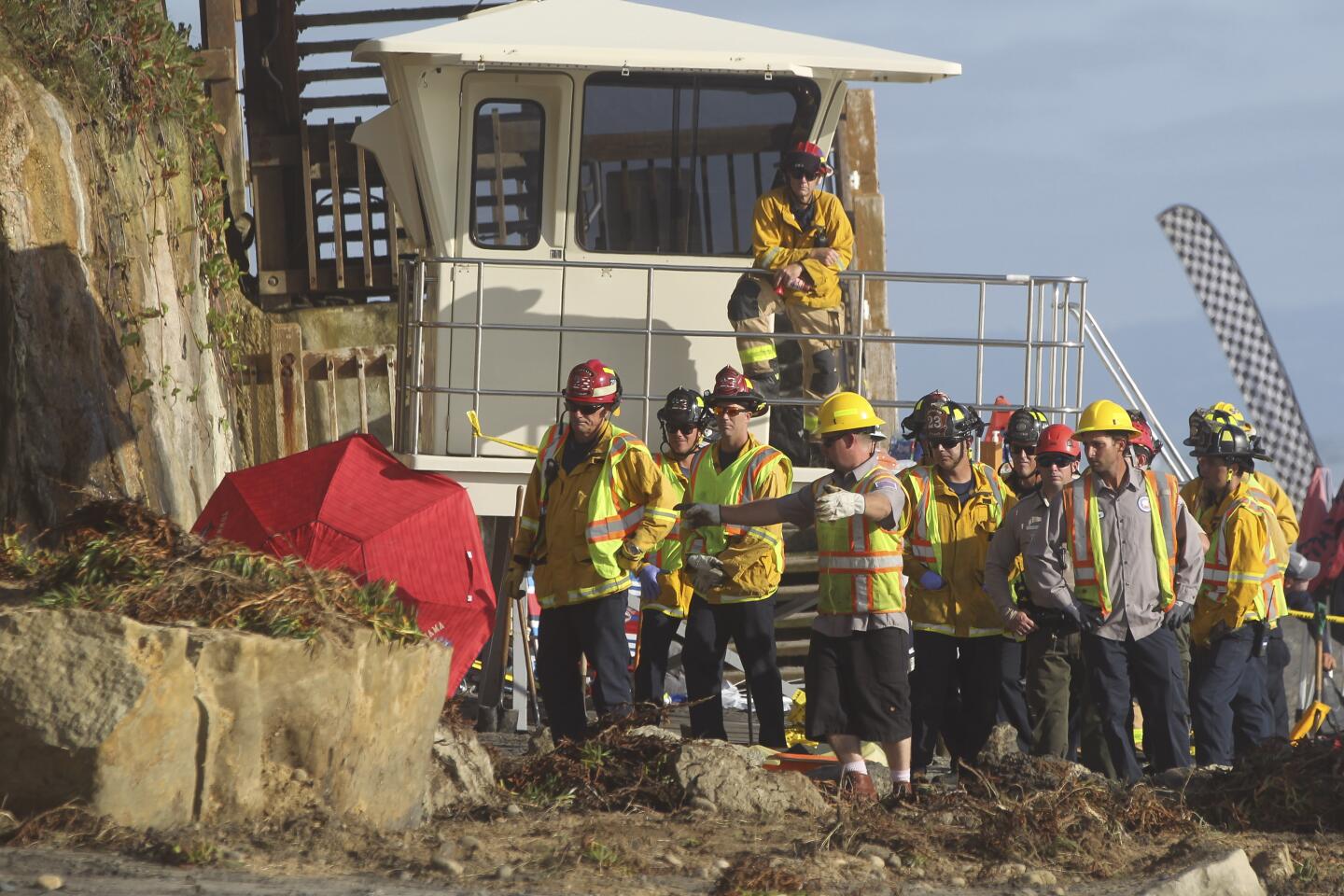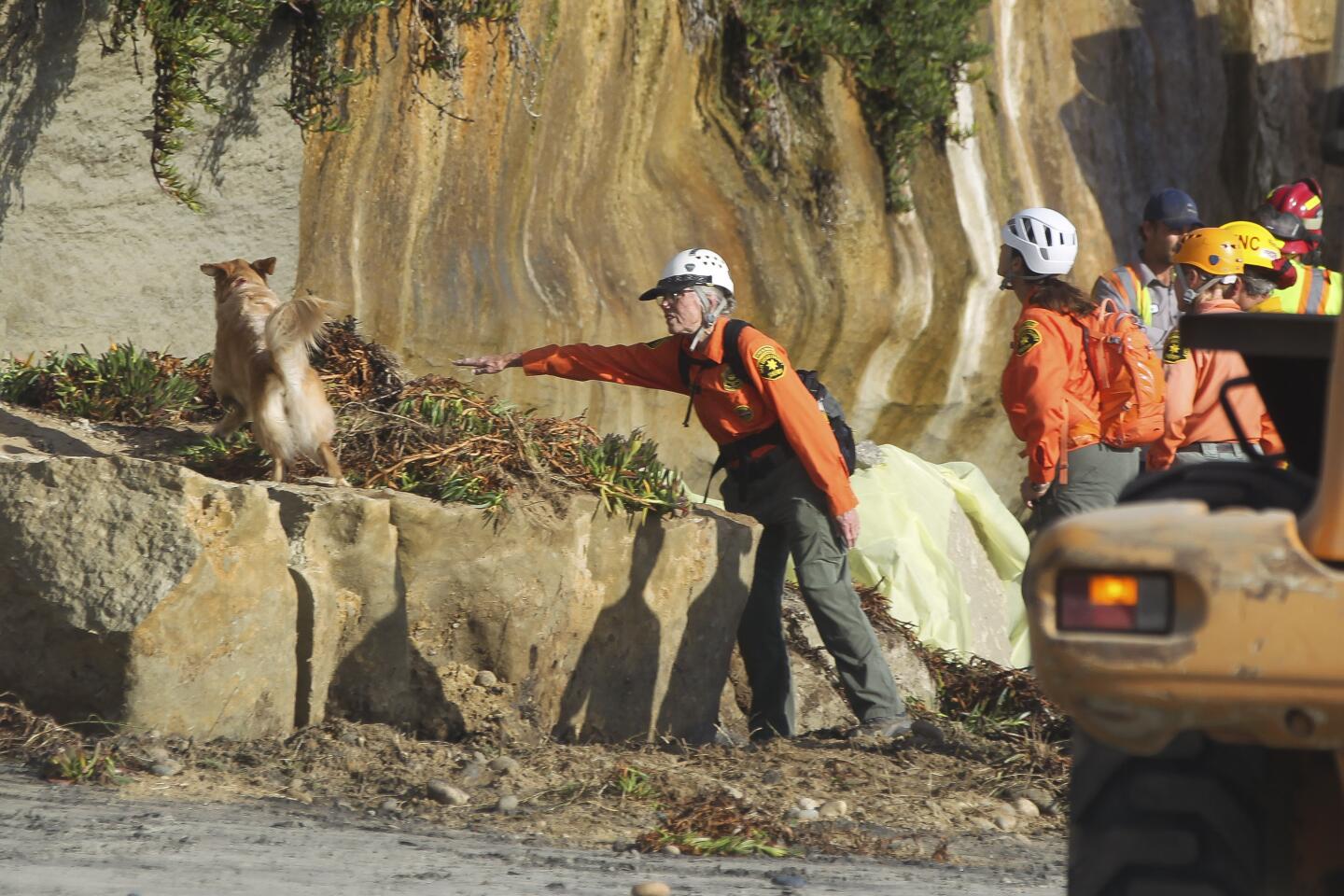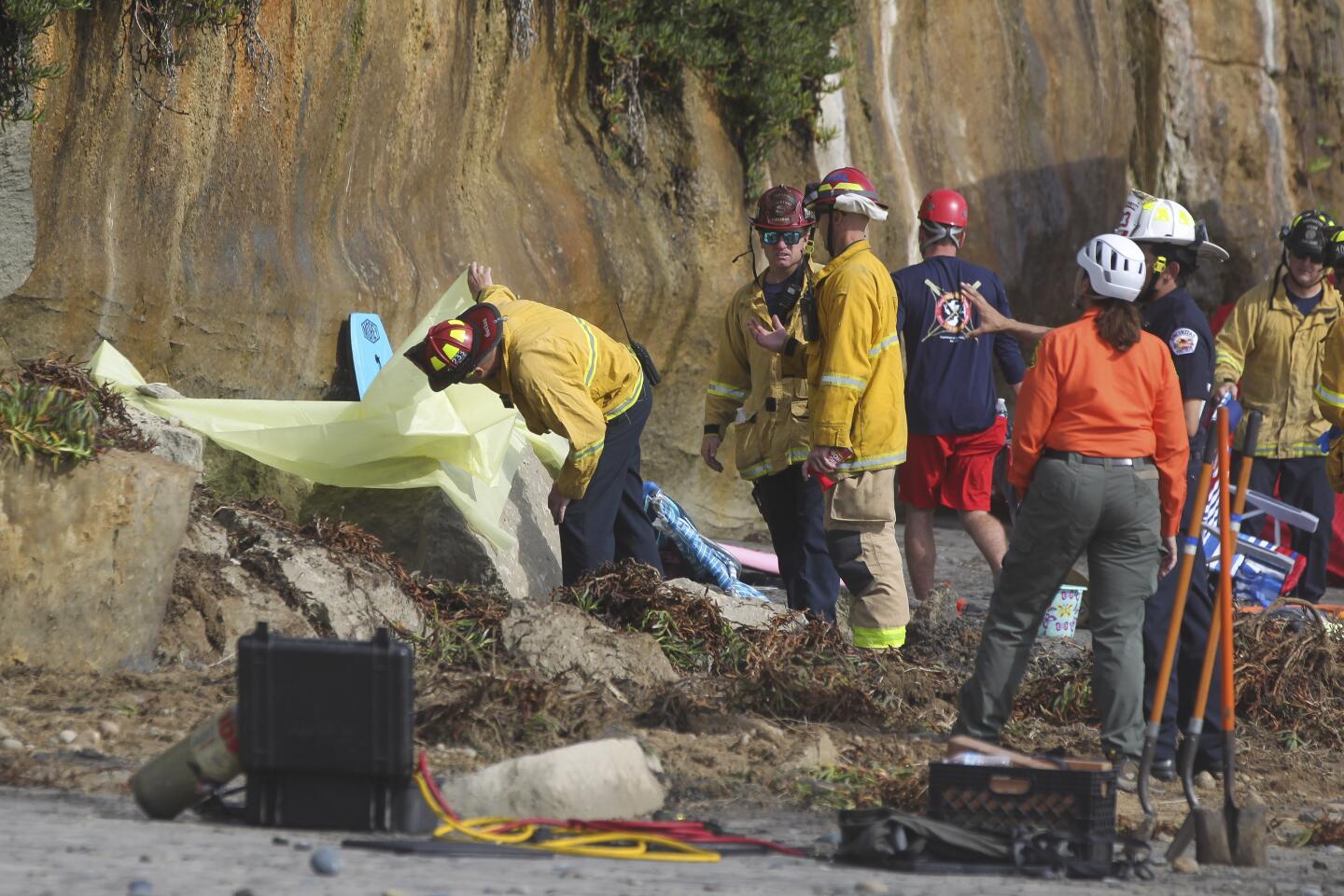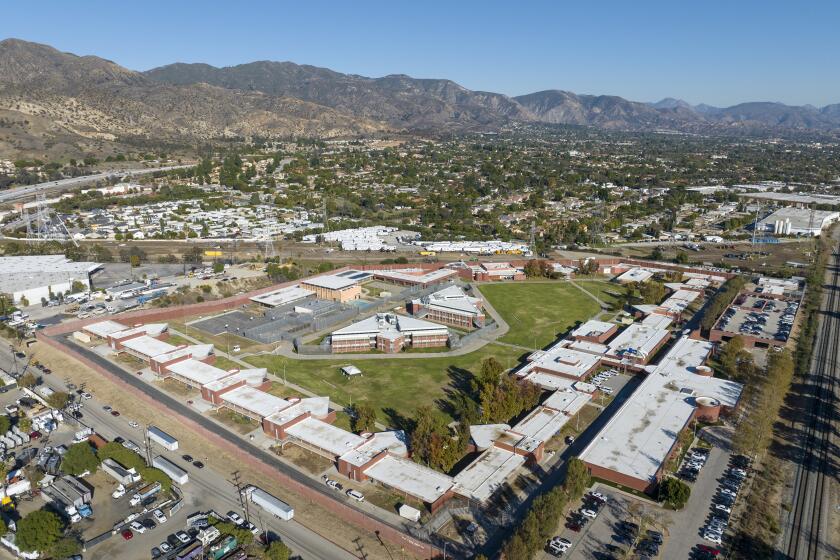Deadly Encinitas cliff collapse is a warning sign for California coast
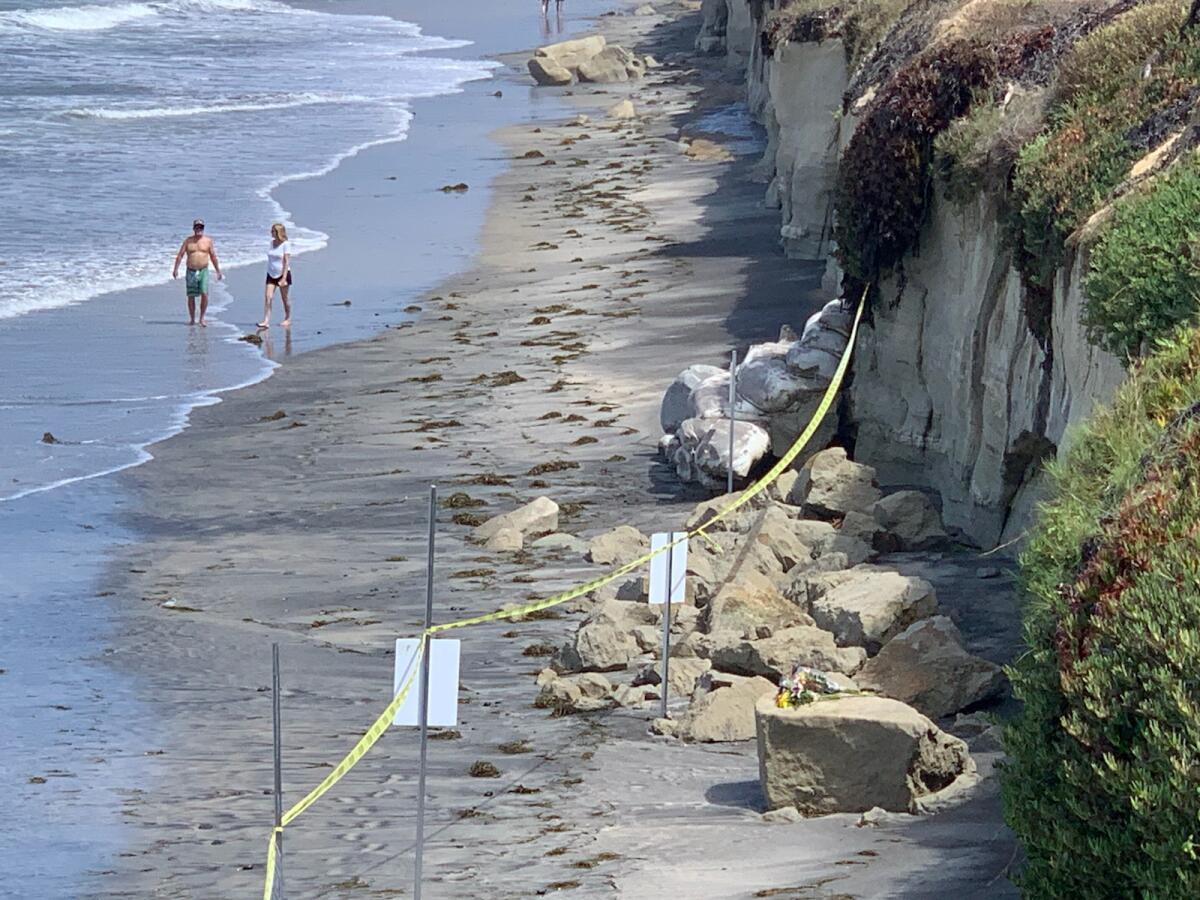
- Share via
The deadly cliff collapse in Encinitas last week raised questions about the stability of large swaths of the state that are lined by bluffs, many of which support houses or offer enticing patches of shade for families relaxing on the beach.
Friday’s collapse, which killed three people, was a tragic consequence of sea cliffs’ natural erosion process, experts say. Chunks of bluffs regularly fall off to create the beach below, so all beach bluffs should be considered unstable, said Brian Ketterer, coastal division chief for California State Parks.
“Any of our bluffs have the ability to fail, and people just need to be aware of that,” Ketterer said.
Adam Young, project scientist at Scripps Institution of Oceanography at UC San Diego, agreed.
“Most unprotected coastal cliffs are actively eroding and should be considered hazardous,” he said in an email.
In February, two women were walking on a cliff above Fort Funston beach in San Francisco when it collapsed and buried them. In 2017, a woman peering over the edge of a cliff in Santa Cruz County fell to her death when the ground gave way beneath her. Last fall, sections of the cliffs in Del Mar in San Diego County collapsed three times in just a few weeks.
In recent years, officials have been working to ease erosion at popular spots in California, including Palisades Park in Santa Monica, Ventura and areas of Laguna Beach.
Cliffs become increasingly unstable as they get steeper and less supported at the base, Young said. Elevated rainfall and groundwater can then trigger landslides in unstable cliffs, he said.
A U.S. Geological Survey study found that cliffs in Southern California could recede more than 130 feet by 2100 if sea levels keep rising. But Young said that cliff collapse is due to a variety of factors and there isn’t enough data to link it to sea level rise.
However, he added that preventing waves chipping away at the base of cliffs by maintaining a wide beach is one strategy to prevent cliff erosion.
In the San Diego area, where beaches can be very narrow, signs warn hikers and tourists that sandstone bluffs can be unstable, said Ketterer. The hard sandstone can develop cracks as water seeps in from the beach or due to rainfall, causing pieces to splinter off.
Officials track falling sediment to monitor bluffs that may be in danger of collapsing, he said. They typically spot a coffee-can-sized piece of sediment on the beach once a month, he said.
“It’s usually not this tragic, and it’s usually not this much at one point,” he said.
Friday’s disaster deposited a hot-tub-sized chunk of sandstone on the sand below the collapsed bluff. Next to the detritus, beach chairs, towels and umbrellas were abandoned where the victims had set them up on a warm day.
Ketterer said the bluffs are particularly inviting because they provide shade on the narrow beaches. He added that the tides were luckily not very high on Friday, so hordes of people were not pressed up against the edge of the bluff when it began to give way.
The last fatal bluff collapse in San Diego County happened Aug. 20, 2008, when 57-year-old Nevada tourist Robert Mellone was crushed by a shower of sand and boulders from a section of bluff above Torrey Pines State Beach.
In 1995, two men died when they were buried under tons of rock, and another was injured as he fled, after a cliff at Torrey Pines State Beach collapsed. The two victims were sitting or walking on the beach when the cliff above them caved in. The men were covered by tons of rock and dirt.
Ketterer said that people often forget that going to the beach is much like going hiking or taking a trip in the mountains.
“It’s a natural space, and there are things that you’re going to have happen that you should be aware of,” he said. “We cannot protect you from something that’s going to happen in the wild.”
More to Read
Sign up for Essential California
The most important California stories and recommendations in your inbox every morning.
You may occasionally receive promotional content from the Los Angeles Times.
